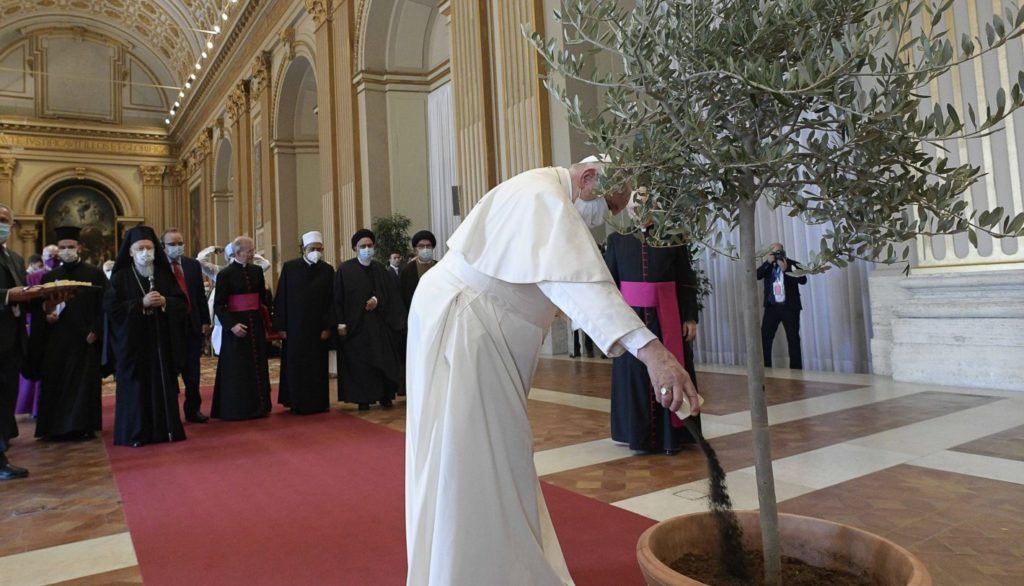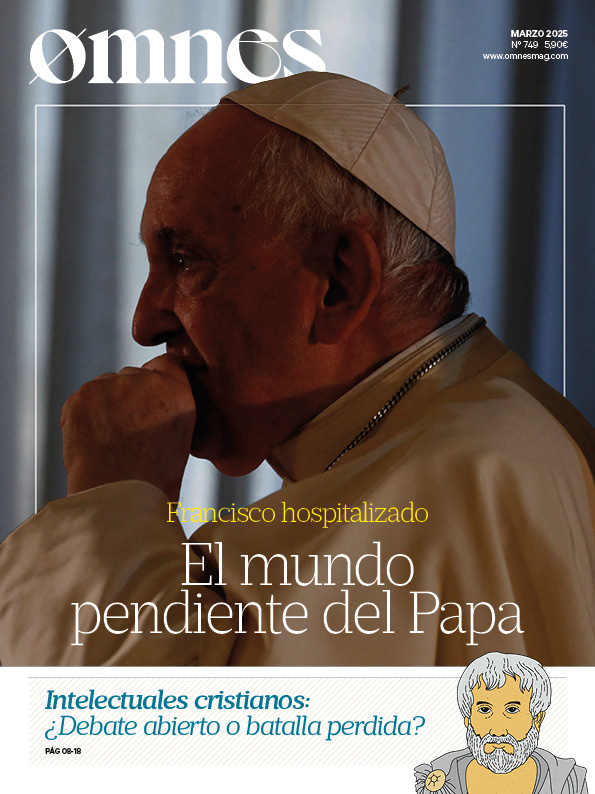Religions have reflected together on the future of the planet and the urgent need for education. In the framework of the Holy See and in the presence of Pope Francis, two meetings were held at the Vatican with the participation of numerous representatives of different religious denominations.
On climate change
The first meeting was promoted together with the embassies of Great Britain and Italy at the Holy See, in view of the COP26 meeting of the United Nations on climate change, to be held in Glasgow from October 31. Addressing the participants in this meeting, the Pontiff stressed the need for religious leaders and scientists to dialogue and collaborate in order to point together towards effective responses to the ecological and values crisis that the world is experiencing.
It is necessary to start from the awareness that "in the world everything is intimately united" and that religious beliefs and traditions themselves are in a certain way a demonstration of the "signs of the divine harmony present in the natural world", since "no creature is sufficient unto itself" and "all exist in dependence on one another, to complement and serve one another".
With this awareness it is also necessary to identify "behaviors and solutions" that can repair "the harmful consequences of our actions", but what is needed is the commitment of all with "an open look at interdependence and sharing".
For Pope Francis, it is necessary to fundamentally oppose what he has repeatedly defined as the "culture of abandonment", which sows "seeds of conflict: greed, indifference, ignorance, fear, injustice, persecution and violence".
Hence the idea of making a joint appeal to the leaders of the nations attending COP26 "to become aware of the unprecedented challenges that threaten us and life on our magnificent common home, the Earth" and, at the same time, to press for "urgent, radical and responsible action" in the face of the serious threat of climate change.
In essence, religious leaders are calling for "net carbon emissions to be reduced to zero as soon as possible" to limit the increase in global average temperature to 1.5°C above pre-industrial levels. The perspective within which this must occur is that of "a time of grace, an opportunity we cannot afford to waste."
For a better education
On the educational front, also central to building the future of the planet, religious leaders were summoned in recent days to a meeting on the Global Pact for Education initiative, launched by the Holy Father on September 12, 2019, "for a more open and inclusive education, capable of patient listening, constructive dialogue and mutual understanding."
Addressing the representatives of other confessions, the Pontiff pointed out that if in the past differences created contrasts between the same religions, today they ask themselves how to educate young people for peaceful coexistence and mutual respect.
This also means defending the identity and dignity of each person and teaching them to welcome everyone without discrimination. The same goes for the rights of women, minors and the weak, and in understanding a "more sober and eco-sustainable" lifestyle.
In fact, Francis explained, "education commits us to love our mother earth and to avoid wasting food and resources", making us sharers in "the goods that God has given us for the life of all". It is necessary to pursue, in short, when the exponents of the different religious traditions, that "harmony of human integrity" through the head, hands, heart and soul: "that we think what we feel and do; that we feel what we think and do; that we do what we feel and think".








